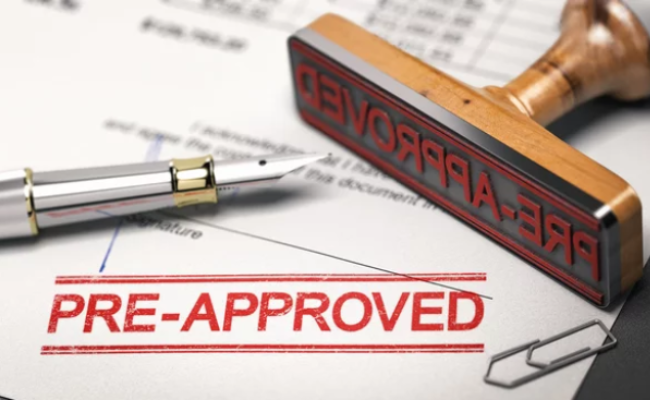Your All-In-One Guide to Navigating Mortgage Loans
Purchasing a home is a significant milestone for many individuals and families. However, understanding complex loan options can be overwhelming, especially for first-time homebuyers. With so many loan options and financial jargon, you might have wondered about the “how to get a mortgage loan” question. Since this is a major financial move, equipping yourself with the right knowledge is critical to making informed decisions.
This comprehensive guide educates first-time homebuyers, seasoned homeowners, and potential real estate investors about mortgage loans. You’ll learn to deconstruct the complex world of home loans, practical steps, and advice and empower readers to make informed decisions.

Understanding Mortgage Loans
If you are a first-time buyer, understanding the nuances of mortgage loans is essential. The right information can help you make informed decisions that align with your financial goals.
What Is a Mortgage Loan?
A mortgage loan, commonly called a mortgage, is used to finance the purchase of a property, usually a home. It is a contractual agreement between a borrower and a lender, granting the lender the authority to seize the borrower’s property if they cannot repay the borrowed funds and interest.
Conventional Loans
These are traditional mortgage loans offered by banks and lending institutions. They typically require a larger down payment of at least 3% to 20% of the property’s purchase price and have varying terms and interest rates.
Fixed-Rate Loans
With fixed-rate loans, the interest rate stays constant throughout the loan’s duration. This rate provides stability and predictability for homeowners, as the monthly payments remain the same over time.
Adjustable-Rate Loans
Also known as adjustable-rate mortgages (ARMs), these loans have interest rates that fluctuate over time. The initial interest rate is lower than fixed-rate loans but can change periodically based on market conditions.
Government-Backed Loans
Government bodies such as the Federal Housing Administration or the Department of Veterans Affairs insure or guarantee these loans. Government-backed loans often have more flexible qualification requirements and lower down payment options.
Jumbo Loans
Jumbo loans finance high-value properties that exceed the loan limits set by government-backed loan programs. They typically have stricter qualification criteria and a higher interest rate.
Lender Considerations
When you apply for a mortgage, the lender evaluates various factors. These may include your credit history, income, and the property value you intend to purchase. Based on this assessment, the lender determines the loan amount, interest rate, and repayment terms.
Once approved, you receive the loan funds and make monthly debt payments over the loan’s term. These payments typically include both principal (the loan amount) and interest.
Each month, when you make a mortgage payment, the lender can divide your payment into several categories: principal, interest, taxes, and mortgage insurance (PITI). Let’s explore how each type works:
- Principal: This portion of your payment goes towards reducing the outstanding balance of your loan. With every payment, you chip away at the amount you owe.
- Interest: The interest is the cost your lender charges for borrowing the mortgage funds. It is calculated based on the interest rate associated with your specific loan.
- Taxes: Your property tax bill for the year is divided into twelve equal parts, and a portion is included in each monthly payment. The lending institution will base your pay on your property’s assessed value and your neighborhood’s tax rate.
- Mortgage Insurance: Mortgage lenders require homeowner insurance to protect your home from potential risks like fire, theft, or accidents. Depending on your down payment or loan type, you may also have an additional monthly payment for mortgage insurance.
What Is a Loan Amortization Schedule?
In the initial years of your mortgage, a larger proportion of your payment goes toward interest. At the same time, the amount allocated to the principal is relatively smaller. However, as time progresses, the portion allocated to the principal increases, gradually reducing the outstanding loan balance.
Your mortgage lender will prepare an amortization schedule, which is a table outlining each payment’s breakdown. This schedule illustrates how your loan balance decreases over time and shows the ratio of principal to interest in each payment.
Referring to the amortization schedule helps a buyer keep track of their loan’s progress and better understand how much principal they pay off compared to the interest incurred with each payment. This information helps you visualize the gradual reduction of your loan balance as you make mortgage payments.
Over time, as you make your debt payments, you build equity in the property. This is the difference between the property’s value and the remaining loan balance. It’s important to note that failing to make payments can lead to foreclosure, where the lender seizes possession of the property to recover their investment.
Why Should You Consider a Mortgage Loan?
Mortgage loans offer several benefits that make them a viable option for individuals and families considering homeownership. Here are some key reasons why you should consider a home loan:
1. Homeownership
One of the primary advantages of a home loan is that it allows you to become a homeowner. Instead of waiting to save up the full purchase price of a property, a mortgage loan enables you to finance the purchase and start building equity in your home.
2. Affordable Payments
Mortgage loans allow you to spread the cost of the property over an extended period, typically 15 to 30 years. This results in more affordable monthly payments than the full upfront purchase, making homeownership more accessible and manageable.
3. Tax Benefits
In many countries, mortgage interest payments and property tax deductions can provide tax benefits. The interest portion of your payments may be tax-deductible, reducing your overall tax liability. Consult a tax expert to understand the tax advantages available in your jurisdiction.
4. Leveraging Appreciation
Real estate has historically shown appreciation over time. By using a mortgage loan to purchase a property, you can benefit from the potential increase in property value. Your equity grows as the property value appreciates, providing you with potential financial gains.
5. Building Equity
With each mortgage payment you make, you gradually reduce your loan balance and build equity in your home. As you build equity, you gain a valuable asset you can utilize for future financial needs, such as home improvements, education expenses, or retirement.
When Should You Get a Mortgage Loan?
You may have your reasons for getting a mortgage, but determining the right time to get a mortgage is a decision that depends on various factors. Here are some considerations to help you determine when it might be a good time to get a mortgage:
1. Stable Housing Needs
If you plan to live in an area for an extended period, a mortgage loan can be a suitable option. It provides the opportunity to invest in a property and build long-term equity rather than spending money on rent.
2. Favorable Market Conditions
When rates are low, and the housing market is favorable, it may be an opportune time to consider a home loan. Lower interest rates can result in more affordable payments and save you money over the life of the loan.
3. Financial Preparedness
Before considering a mortgage loan, assess your financial readiness. Evaluate your credit score, save for a down payment, and ensure you have a stable income to meet mortgage payments.
These steps will increase your chances of qualifying for a favorable loan and managing the financial responsibilities of homeownership.
You may also like: Best mortgage lenders for first-time buyers
How to Get a Mortgage Loan
Getting a mortgage may seem complex, but we will make it easier by outlining the process and providing the requirements and the steps you need to take. Here are the steps you need to help you prepare for a mortgage loan:
1. Assess Your Finances
Start by evaluating your finances. Take a look at your income, expenses, and overall budget. Considering other financial obligations and future costs, understand how much you can comfortably afford monthly debt payments.
2. Check Your Credit Score
Your credit score is crucial in mortgage loan approval and the interest rate you may qualify for. Obtain your credit report from any of the three major credit bureaus and review it for errors or discrepancies.
If your credit score needs improvement, address it by paying your bills on time, reducing debt, and maintaining a low credit utilization ratio.
3. Manage Your Debt-to-Income Ratio
Mortgage lenders assess your debt-to-income (DTI) ratio to determine your ability to manage a monthly mortgage payment alongside existing debts.
Estimate your DTI by dividing your total monthly debts (credit card payments, student loans, and car loans) by your gross monthly income. Aim for a DTI ratio below 43%, although lower ratios are generally more favorable for loan approval.
4. Save for a Down Payment
Saving for a down payment is essential to preparing for a home loan. Determine the minimum down payment lenders require, typically ranging from 3% to 20% of the property’s purchase price.
Establish a savings plan to set aside funds specifically for the down payment. Consider automatic transfers to a dedicated savings account to ensure consistent contributions.
5. Research Loan Options and Lenders
Explore different home loan options available. Research various mortgage lenders, including banks, credit unions, and mortgage companies, to compare interest rates, loan terms, and customer reviews.
Consider seeking pre-approval from multiple lenders to understand the loan amount you qualify for and to strengthen your position when making an offer on a property.
6. Gather Necessary Documentation
Mortgage lenders require specific documentation during the mortgage application process. Prepare documents such as proof of income (pay stubs, tax returns), bank statements, employment verification, and identification documents. Having these documents ready in advance can expedite the loan application process.
7. Work with a Mortgage Professional
Consider consulting with a mortgage professional or loan officer who can guide you through the home loan process. They can provide personalized advice, answer your questions, and help you navigate the complexities of obtaining a mortgage loan.
The Application Process
1. Ensure You Have a Verifiable Source of Income
The first step in applying for a home loan is ensuring you have a verifiable means of income. A source of income is a fundamental requirement that mortgage banks consider ensuring you can repay the loan over the agreed-upon period without defaulting.
A verifiable income source is mandatory when applying for a home loan. Since these loans are long-term commitments, the lender needs assurance that you have a stable source of income to make regular repayments.
Without a reliable income source, it is unlikely that the lender will process or approve a loan, as they want to minimize the risk of default.
Therefore, it is necessary to have a verifiable and steady income stream in place before considering a home loan. This will greatly increase your chances and demonstrate your ability to meet the financial obligations associated with the loan.
2. Research and Select Lenders
Remember to research different mortgage lenders and their mortgage loan offerings. Most importantly, you must consider the interest rates, loan terms, customer service, and reputation.
Seek recommendations from friends, family, or real estate professionals. Once you’ve identified potential lenders, narrow your choices to a few that best align with your needs.
3. Get Pre-Approved (Optional)
Consider getting pre-approved for a mortgage loan before starting the home search. Pre-approval involves submitting your financial information to a lender who will evaluate your credit score and provide a preliminary loan amount you qualify for. Pre-approval can give you a clear budget for house hunting and demonstrate your seriousness to sellers.
4. Search for a Property that Fits Your Budget
After establishing a reliable source of income and achieving a good credit score, the next step is to search for a property that falls within your affordability range. When embarking on this search, it is important to consider certain factors.
One important consideration is ensuring that the property possesses a valid title that allows for creating a legal mortgage, such as a Certificate of Occupancy or a registered Deed of Assignment. The title holds significant importance as a flawed or defective title would hinder your ability to secure a mortgage loan.
5. Get a Home Inspection
Arrange for a home inspection immediately to allow sufficient time for negotiations with the seller if you discover any unexpected issues. It is necessary to understand the importance of a home inspection, even though it may incur additional costs.
Professional inspectors have expertise in identifying potential problems that may go unnoticed by most individuals. This step is particularly important when purchasing an existing home.
Suppose the home requires significant repairs that are not immediately visible. An inspection lets you negotiate with the current homeowner to address these issues.
During the inspection process, feel free to ask questions and have a list of specific areas or features you would like to know about. Upon receiving the final inspection report, most experts recommend prioritizing the identified issues and determining whether you wish to negotiate them with the sellers.
6. Maintain Good Credit History
A favorable credit report is crucial if you apply for a mortgage loan. Financial institutions are unlikely to grant a loan to individuals with lower credit scores. Any previous instances of defaulting on loans from lending institutions can significantly impact your credit score.
A higher credit score is essential to improve your chances of securing a loan. This entails consistently meeting your financial obligations on time, such as repaying loans, credit card balances, and other debts. Demonstrating responsible financial behavior and avoiding defaults or late payments will help build and maintain a higher credit score.
Most experts advise against acquiring new debt while your loan is still processing. Opening new credit cards or making significant financial changes during this period can affect your mortgage approval adversely. Any new loans or alterations impacting your debt-to-income ratio can hinder approval.
You enhance your credibility as a borrower by proactively managing your credit accounts and ensuring a strong credit rating. This increases the likelihood of approval when applying for a mortgage loan, as financial institutions view borrowers with good credit scores as lower risk.
7. Provide the Required Documentation
Mortgage lenders require specific documentation to verify your financial information and determine loan eligibility. The required documents typically include the following:
- Identification documents like your driver’s license or passport.
- Proof of income (pay stubs, W-2 forms, tax returns).
- Bank statements (usually the most recent two to three months).
- Asset statements (investment accounts, retirement savings).
- Employment verification (letters from employers or recent pay stubs).
- Property-related documents (sales contract, appraisal, etc., if applicable).
8. Submit the Application
Start the formal mortgage loan application process by filling out a form provided by the chosen lender. You’ll need to provide personal information, employment details, financial statements, and property details (if identified). Some lenders offer online applications for convenience.
9. Loan Processing and Underwriting
Once you submit your application and necessary documents, the lender begins the loan processing and underwriting phase. During this stage, the lender evaluates your credit score, reviews the documentation, and assesses the property’s value. They may also request additional documentation or clarification if needed.
10. Loan Approval and Closing
If the lender determines that you meet the necessary criteria, they will issue a loan approval. You may need to pay an application fee or other closing costs at this stage.
The lender will then provide an estimate outlining the loan terms, closing costs, and any conditions to meet before closing. Once the conditions are satisfied, the closing process occurs, and you sign the necessary documents to finalize the loan.
When you plan to get a mortgage, research available lenders. Researching what’s available will help you choose lenders with a favorable interest rate and repayment plan. Here are a few ideas for choosing a suitable mortgage lender:
- Shop around: Don’t settle for the first lender you come across. Compare offerings from multiple lenders to better understand the interest rates, loan terms, and fees they offer. Comparing different lenders helps you find the lender that best meets your financial needs.
- Reviews and recommendations: Check previous customers’ reviews to gauge the lender’s reputation and customer service. Additionally, seek advice from trusted sources, such as friends, family, or real estate professionals who have had positive experiences with specific lenders.
- Consider personalized service: Look for a lender who provides personalized service and is responsive to your questions and concerns. A lender who takes the time to understand your unique financial situation and offers tailored advice can make the mortgage loan process smoother and more efficient.
- Evaluate additional services: Some lenders offer other services, such as pre-approval, online account management, and educational resources. Consider whether these additional services align with your preferences and requirements.
Following these simple steps helps ensure you have chosen a lender that meets your needs and sets you on the path to homeownership.
Post-Application—What Happens Next?
After the mortgage loan application is submitted, several important steps and potential outcomes follow. Here is what you can expect and how to navigate each stage:
1. Application Review and Verification
The lender reviews your application, minimum credit score, and the documents you provided. They may verify your provided information, such as contacting your employer to confirm your employment details. This process typically takes several weeks.
2. Conditional Approval
You may receive conditional approval if your application meets the lender’s initial requirements. This means the lender is willing to offer you a mortgage loan, pending the satisfaction of certain conditions.
These conditions include providing additional documentation, clarifying certain details, or meeting specific requirements, such as paying off certain debts.
3. Appraisal and Property Evaluation
The lender will order an appraisal to evaluate the property you intend to purchase. An appraiser will conduct a thorough evaluation to ensure the property’s value aligns with the loan amount. If the appraisal falls below the agreed purchase price, it can affect the loan terms or require renegotiation.
4. Underwriting Process
Underwriting involves a comprehensive review of your application, minimum credit score, documentation, and property appraisal. The underwriter ensures you’ve met all necessary criteria and guidelines for loan approval.
They may request additional documentation or explanations for certain aspects of your application.
Application Outcome
When you apply for a mortgage loan, there are a few potential outcomes that you must prepare yourself mentally and financially for. Remember, the outcome of your mortgage loan application is not solely within your control. Being prepared for different scenarios will help you make informed decisions.
Here are three scenarios you should consider:
1. Loan Approval
Congratulations! You will receive final loan approval if your application and supporting documentation meet all the lender’s requirements. Review the terms and conditions carefully and proceed with the closing process, ensuring all necessary documentation and funds are in order.
2. Conditional Approval with Requirements
If the lender requires you to fulfill additional documentation or conditions, promptly provide the requested information. Communicate with your loan officer or mortgage professional to understand the requirements and ensure a smooth progression toward final approval.
3. Loan Denial or Rejection
Sometimes, a lending institution may reject a mortgage loan application. This scenario can occur if your credit score, income, or other factors do not meet the lender’s requirements. If this happens, it’s important not to lose hope.
What to Do When Your Loan Is Rejected
Getting your loan rejected can be a devastating blow to your plans and, often, to you personally. You might feel inadequate, but don’t lose heart! Follow these steps to help improve your chances of getting your next mortgage loan application approved:
- Understand the reason: Ask the lender for a detailed explanation of the rejection. This will help you identify areas that need improvement and give you insights for future applications.
- Work on credit improvement: If your credit score significantly affected the rejection, focus on improving your credit score. Pay off outstanding debts, make timely payments, and address any errors on your credit report. It may take time, but a higher credit score can increase your chances of approval.
- Seek assistance: Consult with a mortgage professional or financial advisor who can offer guidance and explore alternative loan options that may suit your financial situation.
- Reapply with other lenders: Do not be discouraged by one rejection. Different lenders have varying criteria and may offer different loan programs. Research and apply with other lenders with more flexible requirements or loan options that better align with your circumstances.
- Reevaluate and adjust: Take this opportunity to reassess your financial goals, budget, and homeownership plans. Make any necessary adjustments and focus on strengthening your financial position before reapplying for a mortgage loan.
Final Words
Mortgage loans are valuable financial tools that enable you to achieve homeownership by spreading the cost of a property over time. Most importantly, mortgages have many benefits, including affordable payments, tax advantages, and building equity. These benefits make them an attractive option for many aspiring homeowners.
Choosing a suitable mortgage lender involves considering interest rates, loan terms, customer service, and additional services offered. Remember to consult with professionals, ask questions, and seek guidance whenever needed.
Understanding how mortgage loans work, including interest rates and loan terms. This will help you to make informed decisions. Mortgage loans may seem tricky, but with the knowledge gained from this guide, you can approach the process with clarity and ease.








